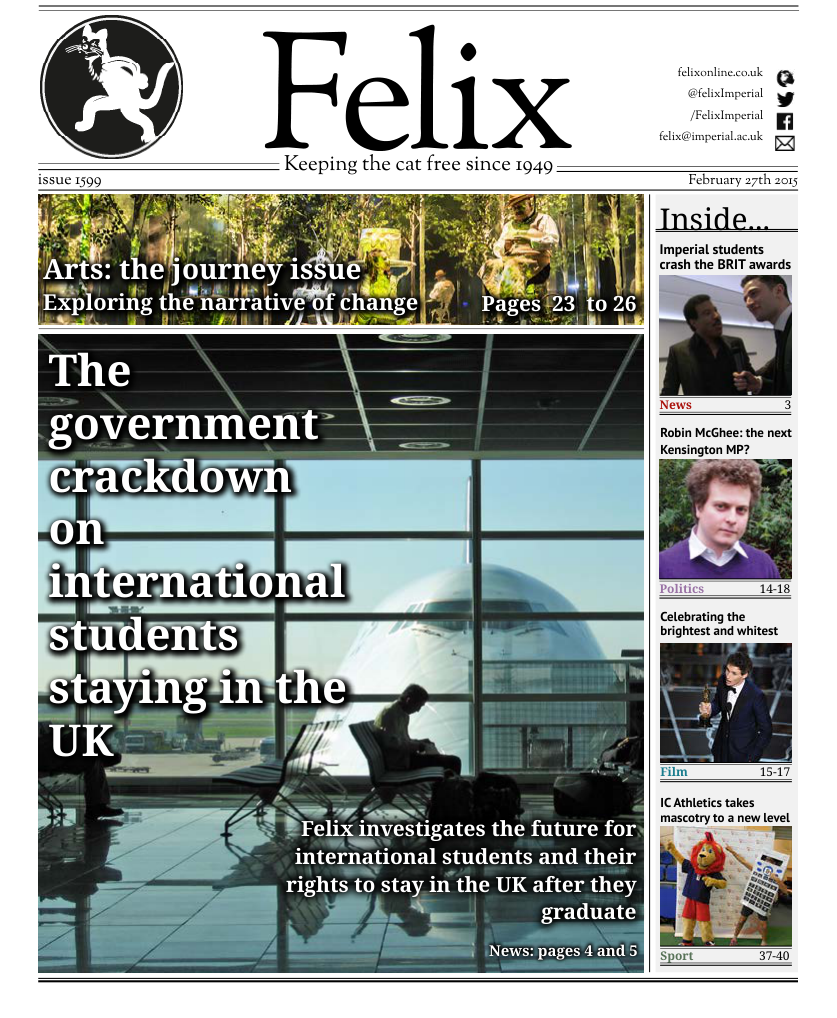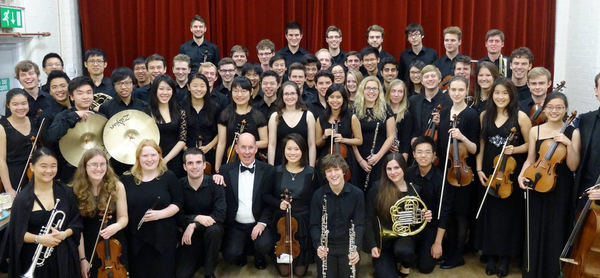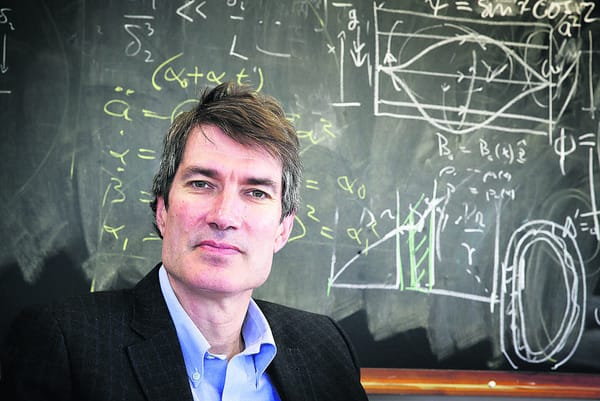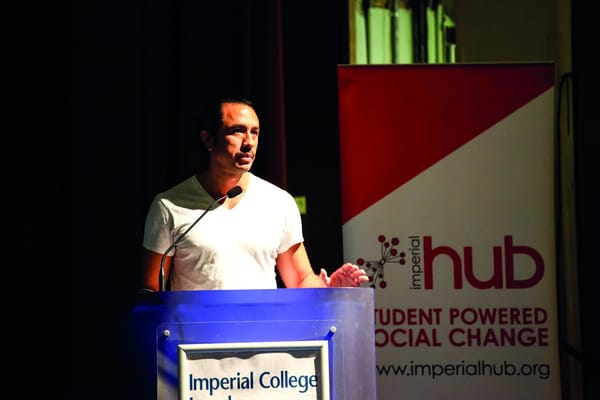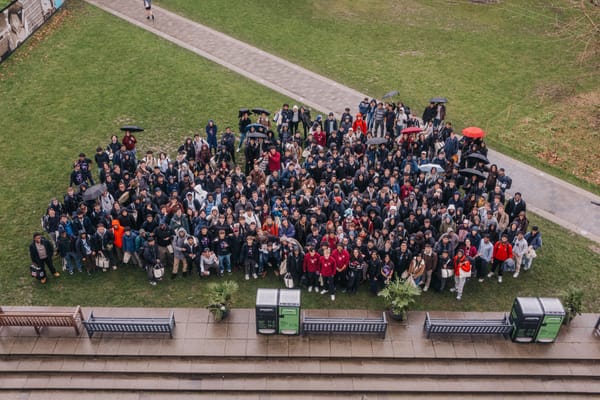International Development in a Changing World
Marcus Bishop reviews the key themes and outcomes of the London International Development Conference
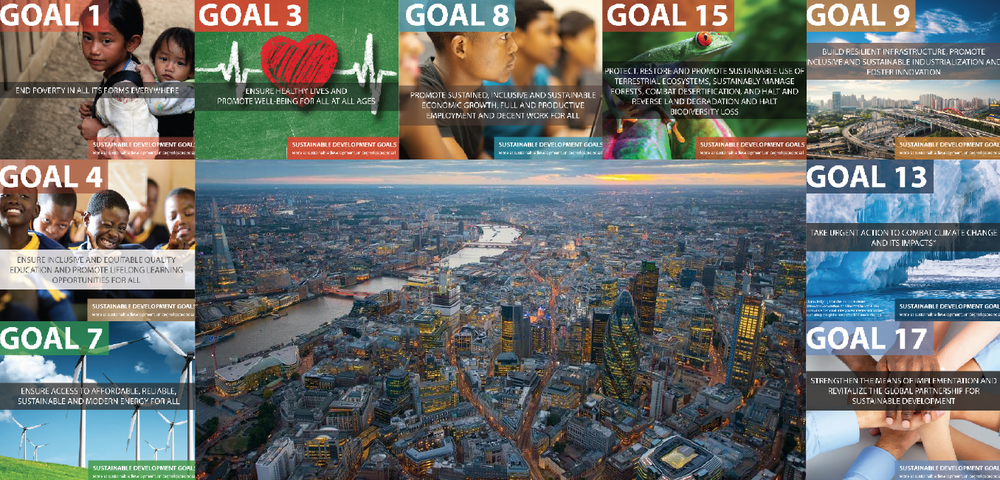
At the Millennium Summit in September 2000, the largest gathering of world leaders in history adopted the UN Millennium Declaration, committing their nations to a new global partnership to reduce extreme poverty and setting out a series of time-bound targets, with a deadline of 2015, that have become known as the Millennium Development Goals (MDGs). Now we’ve hit 2015, the London International Development Conference (IDC) asked what progress has been made, and more significantly, how can the global development agenda adapt to address a different set of challenges?
The world has changed greatly during the last 15 years. Dramatic events, including unprecedented natural disasters in part linked to climate change, the Great 2007 Recession and Arab Spring, have changed the course of global progress in unanticipated ways and demonstrated the unreliability of established economic models and political assumptions. A new and more balanced global order is emerging. Divides between developed and developing countries are lessening, as many formerly underdeveloped countries move up the economic ladder. Global demand for natural resources is increasing, in some cases beyond the capacity of the environment to replenish itself or absorb the impacts of our anthropogenic activities.
It is clear that the 8 MDGs did actually galvanise action to support development. Global poverty has been halved five years ahead of the 2015 timeframe. Ninety per cent of children in developing regions now receive primary education, and disparities between boys and girls in enrolment have narrowed. Remarkable gains have also been made in the fight against malaria and tuberculosis, along with improvements in all health indicators. The likelihood of a child dying before age five has been nearly cut in half over the last two decades. That means that about 17,000 children are saved every day. We also met the target of halving the proportion of people who lack access to improved sources of water.
The MDG framework has however been criticised, mainly for what it has omitted. Critics argue that the goals do not place enough emphasis on sustainable development, and are a minimalist interpretation of the millennium declaration’s spirit and ambition, leaving out crucial issues such as peace and security.
The London IDC kicked off with Hilary Stauffer, former Geneva Diplomat and Fellow at LSE, who examined the important intersections of Development and Human Rights. Hilary started by saying “Nobody can agree whether the ‘right to development’ is a reasonable request from poor countries for a helping hand, or a naked money grab that allows them to put off real reform”. Hilary framed a debate which identified two distinct schools of thought around this intersection.
The Human Rights Power Structure in Geneva is a much more natural home for the geo-political West, as they understand that language and sensibilities that go along with the idea of “human rights,” and generally believe that if you have good governance, economic development will eventually come. In contrast, the Development Power Structure in New York is a much more natural home for the geo-political Global South, as they understand the language and sensibilities of “development” and generally believe that a baseline level of economic development is a pre-requisite for the “luxury” of good governance.
‘Development’ people tend to think that ‘Human rights’ people are obsessed with the macro level of things (treaties, conventions, diplomacy), and get so caught up in the details they forget there are real people that are the subject of these international legal instruments. ‘Human rights’ people think that ‘Development’ people are only concerned with the micro level of things (poverty alleviation projects, clean water initiatives) and get so caught up in the details they forget governments move slowly and are generally tight-fisted.
So the question is, who is right? What is the point of having another treaty that doesn’t solve anything? Why has ~70 year of aid in Africa failed to deliver proper clean water systems for millions? Essentially, we have a lot to learn from each camp, and we shouldn’t think rigidly about the most effective means of achieving development goals. It is important to consider the benefits of international coalitions for delivering positive change and aid to the desperate, in combination with human rights laws and strong governance to maintain fair and efficient socioeconomic improvements at the local level.
The conference then invited Maurice Wren CEO of The Refugee Council, and Stephen Wordsworth of the Council for At Risk Academics to tackle the more-tangible human rights violations of Syria, and dangerous migration routes into Europe. The number of migrants landing on Italian shores quadrupled last year, as more than 170,000 people from the Middle East and Africa fled humanitarian crises, piling pressure on the EU to form a long-term migration strategy. Syrians fleeing civil war and Eritreans escaping forced conscription comprised nearly half of all Italian boat arrivals in 2014, according to the International Organisation for Migration (IOM). Refugees from Libya, Mali, Sudan, Nigeria and Gambia were also common. Many migrants brave a perilous journey across the Mediterranean to Italy before travelling overland to other European countries. More than 3,200 fatalities were recorded last year, and many more are expected as the EU controversially scales back its rescue operation.
Maurice described the daily struggle for existence of the migrants squatting in ‘the Jungle’ of Calais, and many find it shocking that such poor conditions can be found in one of the most developed countries in Europe. The apathy of EU members to take in migrants has frustrated many advocating the case of those suffering from the aftershocks of the Arab Spring. Stephen spearheaded the need for more commitment from the UK to support refugees, and “do away with the preconceptions that all migrants are unskilled and are a burden on society”. Academics are often the most persecuted individuals, due to their exposure to knowledge and ability to enlighten others. Many of our research efforts around WWII would have been thwarted if we did not intervene to help academics in plight. So the Sustainable Development Goals (SDGs) have some very immediate questions to address: why are Western countries doing so little to support refugees and what plans do we have to mitigate not conflict and climate-related migration?
Although eliminating hunger is a requisite of development, it is now becoming important to take into account nutritional security through food research and development expenditures, and production methods. Advancements in agriculture were key to achieving the first Millennium Development Goal of eradicating extreme hunger and poverty, and over the last 15 years, a new concept has emerged: Sustainable Intensification. This is an agricultural development concept advanced by Imperial’s Sir Gordon Conway, represented at the conference by Emily Alpert. Emily reasoned that climate change and economic poverty are highly entwined, and a step-change in agricultural productivity must be achieved through sustainable land use, tackling pests and diseases, better management of: soils, water and nutrient resource. Mike Warmington of One Acre Fund highlighted the capital deficiencies in rural economies, and that access to microfinance and business skills, can help farmers improve yields and their livelihoods. The key to many agricultural development programmes is proper engagement of female stakeholders, who must be given a voice, to improve their access to agricultural and ecological knowledge to change a daily struggle for sustenance into a profitable business, capable of generating surplus product.
By lunch, many of Imperial’s engineers were feeling a little lost. David Measures from CARLA International brought the technophiles back into touch, with a workshop on the role of Appropriate Technology in development. Many of the SDGs will rely on engineering for their implementation, particularly the ability of engineers to apply socio-centric, and sustainable design principals to address water security, Greenhouse Gas emissions and energy crises. Where best to start than looking at what has gone wrong with technology based development? Many failed projects are a result of poor understanding of stakeholder needs, and the inadequate robustness of systems, when taken into challenging environments.
David used the example of a UNICEF water tower in Kenya, which relied on solar panels for pumping. Local users simply left the tap on, over-abstracted the water supply, and then resided to harvesting water from fetid pools – many died as a consequence of poor design, and yes, the solar panels were stolen. It is crucial that if we choose to support overseas development through the SDGs, we must properly engage those interacting with technology, ideally to support local innovation, over the interventionist approaches of aid agencies and Governments.
Numerous models of global health programs have emerged over the years. They range from vertical programs focusing on solutions for specific diseases and conditions, to horizontal ones focusing on achieving universal health coverage by encouraging the establishment of community-based health services. Beverley Stringer, Health Policy and Practice Advisor at Medecins Sans Frontieres (MSF), walked delegates through some of these models. She presented ideas about what makes certain health models better than others, and why they should be expanded in the future. MSF is a charity at the heart of the humanitarian response to the ongoing West African Ebola epidemic. The take-home message was that despite the fragility of developing countries’ healthcare systems, and the interrelation of health and economic prosperity, the SDGs unfortunately leave behind many important global health issues.
Other afternoon talks addressed the importance of accountability, transparency and effectiveness of charities, prompting the question; where does my donation end up? The Against Malaria Foundation talk by Rob Mather (CEO), discussed the hampering effect of theft, and the value of measuring and reporting in improving aid supply chain efficiency. He also caused a stir by attacking MDG programmes for wasting funding on expensive projects such as the Millennium Village Project, which had limited impact.
Celeste Hicks, a freelance journalist, explored some of the effects of China’s Imperialist agenda in Africa. Since 2009, it has been Africa’s biggest trade partner, with bilateral trade of $210bn in 2013. However, it is unknown whether China has been exploiting the rich soil of Africa at the expense of local African people for its own need of oil, copper, iron ore, cotton, coffee and other natural resources. China’s influence on Africa has significantly increased in recent years, aided by the promise to Governments of economic development through infrastructure spending. Despite the efficiency with which Chinese businesses can establish schools, hospitals and roads, there remains a concern; what benefit does it all have without operational funding or sustainable legacy? “Just building stuff doesn’t necessarily promote wider development”.
Concluding the day, Andrew Lamb, former EWB-UK CEO and World Bank consultant, outlined the concept of ‘A Millennial’ s Development Goals’. He focussed on how Millennials, people born between 1980 and 2000 (yep that’s us), have accelerated development efforts, and are highly aware of global issues. The importance of proper sanitation (good loos) was a key theme, and he said “there remain clear deficiencies in the ability of the MDGs to tackle basic sanitary issues, which stunt improvements to health in slums and areas where open defecation is practiced”. Sewage systems have been important in building prosperous civilisations through the ages (the Romans managed this ages ago…), but it is evident that many countries are growing so fast, and unequally, that sanitation systems face severe barriers to deployment.
The MDGs created a division in responsibilities and contributions between developed and developing countries. The new SDGs must call on the actions and commitment to change of all countries and development actors. The post-2015 process also runs the risk of being another development fad or gimmick, soon to be replaced by new thinking. That danger can be limited if the goals form an ongoing global compact spanning private sector investment in addition to government involvement and the UN, whose aim is sustained, collaborative progress over the long term. Ultimately, the SDGs and their implementation strategies need to keep pace with development’s ever-changing economic, political and social drivers and influences, from trade regimes to foreign investment patterns.
It’s Imperial’s Millennials – the scientists, engineers and future-business leaders – who are in the hot seat to deliver the SDGs, and manage the sustainable growth of our societies.
Any thoughts? Tweet: #LIDC2015 @ImperialHub.
More information is available on www.imperialidc.org

